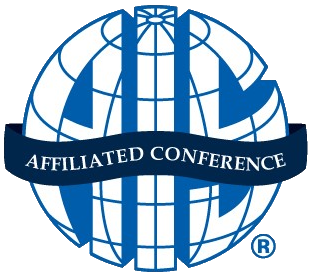01: The Networked Society
Track Description
The term ‘Networked Society’ is one that has now gained common currency in both academic and popular discourse. As a concept, it depicts, and promotes, a vision of a society that is thoroughly permeated by information and communication infrastructures, which are seen as being deeply implicated in (re-)shaping the practices and structures that are constitutive of all facets of social life. The emphasis, then, is on the emergence new modes of ‘connectedness’, and associated economic, political, and social/cultural transformations (Castells & Cardoso, 2005; Castells, 2004).
A notable feature of much of the ‘Network Society’ discourse, however, is the predominance of very benign, or utopian, visions of the future. Technology companies and social commentators, for example, have enthusiastically embraced the concept as a means of emphasising the rich opportunities for all in a connected world. In a nutshell, the assumption is that ‘connections will engender opportunities’, with implicit promises of a progressive march towards the digital ‘Good Life’ of a more prosperous, stimulating, and benevolent society.
Of course, there is much to be admired and lauded in such visions. The promise of new, technology-enabled, forms of social organisation has been persuasively made by authors who have focused upon the prospects of, inter alia, increased civic engagement and participation, new modes of social production (Benkler, 2006), and the use ICT for accelerating social/economic development in some of the most deprived regions of the world.
Yet, there are also a growing number of more critical voices, which have drawn attention to the darker sides of visions for a ‘Network Society’. Concerns have been raised about a range of issues, including, for instance: the prospects of increasing levels of surveillance and intrusions on personal privacy, risks associated with outcomes of flawed megaprojects, and the dangers of an increasing polarisation of society. These alternative visions are often no less compelling, and demand serious attention too.
The aim of this track, therefore, is to clarify and enrich (competing) visions of a Networked Society, by inviting contributions to a critical discourse about the role of technology and its associated social implications. As the Networked Society is a broad and inclusive concept, we welcome contributions that focus specifically on relevant facets of the debate (such as privacy or the Digital Divide, for example), as long as they are situated against the broader backdrop of the track theme.
Types of Contributions
The track seeks original contributions that reflect the concept of the networked society, its role in the political and economic discourse, related utopias and dystopias and how it makes the role of information and communication infrastructures intelligible. Suggested topics are (See, for example, (“Networked Society - Ericsson,” 2012):
- Reflections on the notion of the networked society: from connections to relationships?
- Foresight studies or scenarios about the networked society and related transformations in the economy, politics, or society at large.
- The network society discourse: visions, values and concerns.
- The networked society as an expression of the ‘Good Life’.
- The non-networked society: is there such a thing, and what is its significance?
- Networks of responsibilities in the information society.
- Network economy and networked society.
- Societal implications of networked modes of governance.
- Engagement and participation as modes of networking.
- Empirical studies of network society phenomena, such as social networks or social production.
- Critical theory-inspired accounts of the networked society.
References
- Benkler, Y. (2006). The Wealth of Networks: How Social Production Transforms Markets and Freedom. Yale University Press.
- Castells, M. (Ed.) (2004). The Network Society: A Cross-Cultural Perspective. Cheltenham: Edward Elgar Pub.
- Castells, M., & Cardoso, G. (Eds.). (2005). The Network Society - From Knowldege to Policy. Washington, DC: Johns Hopkins Center for Transatlantic Relations.
- Networked Society - Ericsson. (2012). Retrieved from http://www.ericsson.com/thinkingahead/networked_society
Track Chairs
Séamas Kelly – University College Dublin

Séamas Kelly is a Senior Lecturer at the UCD School of Business, University College Dublin. His research interests are in the area of critical organisation and technology studies, and are broadly concerned with the relationship between knowledge, technology and social organisation. This includes the organisation of knowledge production practices and their politics; ICT-enabled organisational innovation and associated social implications; and, the role of affectivity and embodiment in processes of knowing, organising, and relating.
Stefan Klein (corresponding chair) – University of Muenster

Stefan Klein is Professor for Interorganizational Systems at the University of Münster. Previously he held positions at University College Dublin, Ireland; University of Koblenz-Landau, Germany, and University St. Gallen, Switzerland. His current research areas are information infrastructures, network economy, information management, and the transformation of work. He studies practices of technology use and organizational transformation from an individual to an industry level. He has published widely and is a member of the editorial board of several international IS journals. He has been program co-chair of ICIS, ECIS, ENTER and the Bled eCommerce conference as well as track co-chair at ECIS and WI.
Bernd Carsten Stahl – De Montfort University

Bernd Carsten Stahl is Professor of Critical Research in Technology and Director the Centre for Computing and Social Responsibility at De Montfort University, Leicester, UK. His interests cover philosophical issues arising from the intersections of business, technology, and information. This includes ethical questions of current and emerging of ICTs, critical approaches to information systems and issues related to responsible research and innovation.
Associate Editors
- Daniel Beverungen, University of Muenster
- Niall Hayes, University of Lancaster
- David Kreps, Salford University
- Rachel McLean, Liverpool John Moores University
- Gianluca Miscione, University College Dublin
- Camilla Noonan, University College Dublin
- Joan Rodon Mòdol, ESADE Barcelona
- Susan Scott, London School of Economics
- Maha Shaikh, Warwick Business School
- Mary Beth Watson-Manheim, University of Illinois at Chicago
- Mark Thompson, University of Cambridge
- Yingqin Zheng, Royal Holloway, London


